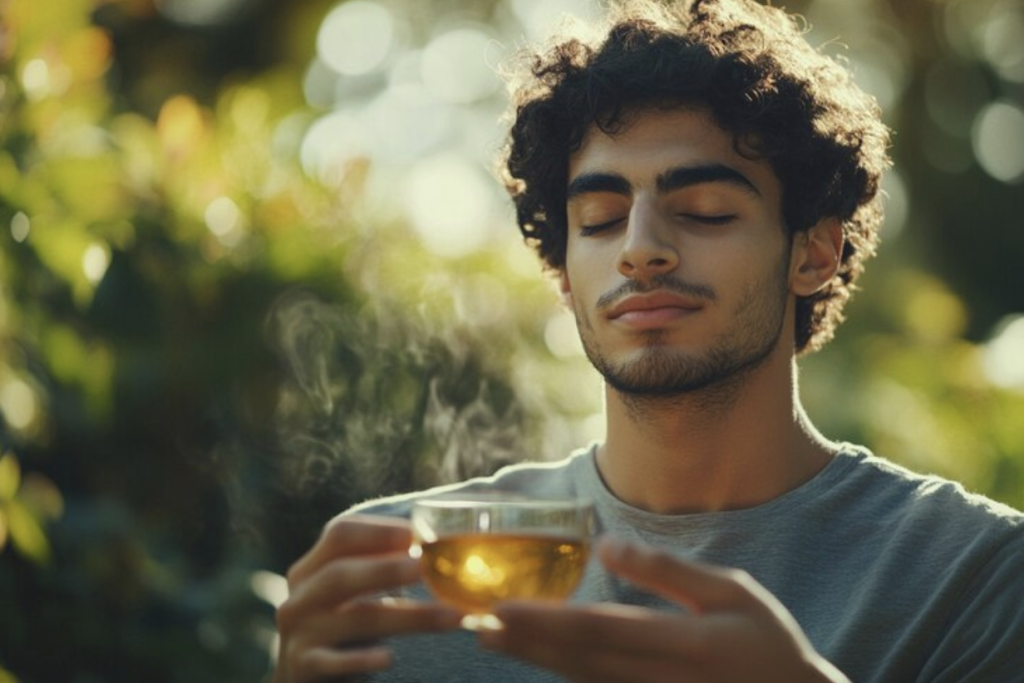Many people are starting to think about their relationship with alcohol. Some choose to cut back, and others stop drinking altogether. This growing interest in reducing or stopping alcohol use is called “sober curiosity.” But what does it mean to be sober curious? Let’s explore the benefits of sober curiosity and how it leads to mindful drinking.
What is Sober Curiosity?
Sober curiosity is when someone decides to question their drinking habits. It is not about being forced to quit alcohol for health reasons. Instead, it’s about making a conscious choice to reduce alcohol intake or stop drinking completely. Being sober curious allows you to think about how alcohol affects your body, mind, and overall life.
Unlike total sobriety, where the focus is on avoiding alcohol entirely, sober curiosity lets people explore what happens when they drink less or not at all. Many people who practice sober curiosity are looking to feel better and have more control over their drinking habits.
The Physical Health Benefits of Sober Curiosity
One of the biggest benefits of being sober curious is better physical health. Drinking less alcohol can lead to:
- Better Sleep: Alcohol can disrupt sleep. Reducing or stopping drinking can improve sleep quality. People often report feeling more rested and energized when they cut back.
- Improved Liver Health: The liver processes alcohol, and drinking too much can strain it. By drinking less, you give your liver a break, which helps it stay healthy.
- Stronger Immune System: Alcohol weakens your immune system, making it easier to get sick. Drinking less can help your body fight off illness more effectively.
- Weight Loss: Alcohol contains a lot of empty calories. Many people notice they lose weight or feel more in control of their diet when they drink less.
Mental Health Benefits of Sober Curiosity
Sober curiosity isn’t just about physical health. It can also improve your mental well-being. Reducing alcohol intake can lead to:
- Better Mood: Alcohol can affect your mood, leading to anxiety or depression. Many people feel happier and more stable when they reduce their alcohol intake.
- Increased Clarity: Alcohol can cloud your thinking. Drinking less allows for clearer thoughts and sharper focus, improving decision-making.
- Lower Stress: Some people drink alcohol to relax, but over time, alcohol can increase stress and anxiety. Practicing sober curiosity helps people find healthier ways to manage stress.
Social Benefits of Sober Curiosity
Being sober curious can also improve your social life. While drinking is often a part of social events, reducing alcohol can bring many positive changes:
- More Meaningful Connections: When you drink less, conversations and interactions with others can feel more genuine and engaging.
- Improved Confidence: Many people rely on alcohol to feel more comfortable in social settings. Being sober curious encourages people to build confidence without alcohol.
- Less Peer Pressure: Practicing sober curiosity can make you feel more in control. You learn to say no when you don’t want to drink without feeling pressured by others.
How to Practice Mindful Drinking?
Mindful drinking is a way to control how much and when you drink. It’s about making thoughtful choices around alcohol rather than drinking out of habit. Here are some ways to start:
- Set Limits: Decide how much you want to drink before you start.
- Take Breaks: Have alcohol-free days or weeks to see how you feel.
- Stay Present: Focus on how alcohol makes you feel in the moment. Does it make you feel better or worse?
- Find Alternatives: Try non-alcoholic drinks or mocktails at social events.
Conclusion
Sober curiosity is not about giving up alcohol forever; it’s about making mindful choices and improving your health. It leads to better physical and mental well-being, stronger relationships, and more control over drinking habits. Whether you want to cut back a little or stop altogether, sober curiosity is a personal journey toward a healthier lifestyle.Start your mindful drinking journey today by exploring more tips and resources at soberlycurious.com.
